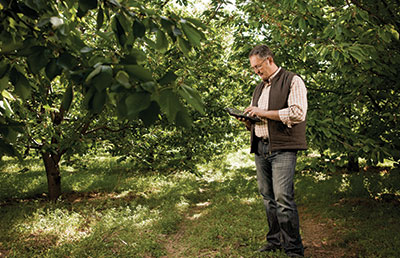Time to consider farming election under IRC § 163(j)?

As Paul noted in his post, he has officially retired from CLA and passed the baton to his CLA family. Carrying out the work that Paul started is a tough task, he is an ICON, and I will do my best to follow in his footsteps. As a quick introduction, I am a signing director with CLA and have over 13 years of experience in ag/food & beverage space and have served broad variety of family-owned businesses.
For my first post, I have chosen a topic that I have spent a significant amount of time in recent years. Working on this topic has provided me opportunities to further learn the operations, understand the growth plans and plan out tax opportunities (not only tied to this topic) for my clients.
Tax reform and Jobs Act of 2017 significantly amended the §163(j), as a revenue raiser provision, whereby limiting the deductibility of the interest expense. Under the provisions, deductibility of the interest expense was limited to 30% (limit was increased for 2019 and 2020 under CARES Act) of Adjusted taxable income (ATI) – broadly defined as taxable income before taxes, interest, depreciation, amortization, and depletion.
The code did provide relief to farmers under the following two provisions:
- Small business exception – If a business qualified as a small business (and was not deemed tax shelter), it was not subjected to rules under this provision. Small business is broadly defined as a business with average 3-year gross receipt of $27 million or less for 2022 tax year. Some related party rules, aggregating gross receipts, needs to be considered when calculating the average. Aggregation rules are complicated and if there is interest in learning about the rules, I can start a series of new posts.
- Farming Excepted trade or business – if a farming business didn’t qualify under small business exception, under this relief, the farming business could elect out of § 163(j). The tradeoff here is the slowdown in deprecation. Any electing farming business is not allowed to take bonus deprecation and is required to use ADS method to depreciate any property with depreciable life of 10 or more years.
In 2017, when this went into effect, we spent a lot of time analyzing the impact of this change for my fruit/nut growers who didn’t qualify for small business exception; especially for accrual basis farmers who had recently planted acreage or the orchards were coming into production. The concern was to whether elect out and not have interest limitation or stay in and take bonus depreciation on trees (10-year MACRS depreciable life) that are going into production. For the most part the conclusion was to not elect out at that time as addback of depreciation in ATI calculation alleviated any interest limitation or limited to a very small amount. However, effective for years starting on January 1, 2022, the formula for ATI now excludes addback for depreciation, amortization, and depletion. Thus, becoming significantly restrictive for farmers who are relatively leveraged.
As we dive into the tax busy season this new year, it’s time to reconsider if it makes sense to elect out of IRC §163(j) limitations. The answer to this question is very fact dependent and may require an in-depth analysis/modeling exercise but I have listed some of the things that should be considered below:
- What’s the debt profile and projected income? If you are expecting operating income to increase and leverage to decrease in near future, may consider staying subjected to these rules. However, if the business is going to be leveraged with high interest charge, may consider electing out.
- What’s the amount of excess business interest expense (EBIE) from prior year? This goes side by side with the first point. Once the business/activity elects out of §163(j), any excess business interest cannot be deducted, either by the corporation or members/shareholders/partners of the passthroughs, till the activity/business creates excess taxable income or activity/business is sold.
- What type of capital expenditures are you expecting in short term – assets with a depreciable life shorter than 10 years (equipment, tractors, above ground irrigations, etc.) or with depreciable life of 10 or more years (trees, below ground irrigation, etc.)? If shorter life, this may support electing out. Also, consider how will this expansion be funded – debt vs. equity.
- When are asset going to be in production? For me, this point is the hard one to analyze. As of now, bonus depreciation is going to be phased out by 2027; however, congress have historically extended the bonus depreciation. If the assets are to come in production in 2027 or after, as the code reads, they will not qualify for bonus depreciation; thus, one more point supporting electing out; but, what if congress extends the bonus depreciation…? So, if you are planting an orchard right now, this one is tough to answer.
Farming businesses which are not considered small business and haven’t previously elected out, should start looking at this now to determine the impact of the interest reduction.
Mohit is a certified public accountant with over 13 years of experience specializing in food and beverage, agricultural, and cooperative space. His experience includes serving a broad variety of private and public companies including C and S corporations, multi member/partner partnerships, multigenerational family-owned businesses, multi-state manufacturing/distribution entities, and private equity agriculture ventures.

I am looking for a clarification: Does the new provision of not including taxes, interest, depreciation, amortization, and depletion when calculating 2022 ATI apply to just the Farming Excepted trade or business, or does it apply to the Small Business exception as well? Additionally, does the 30% rule (both new and old) even apply to a farmer who does qualify as a small business?